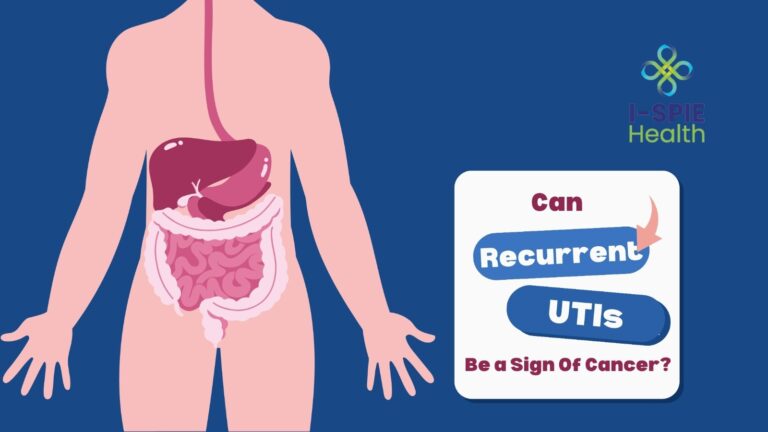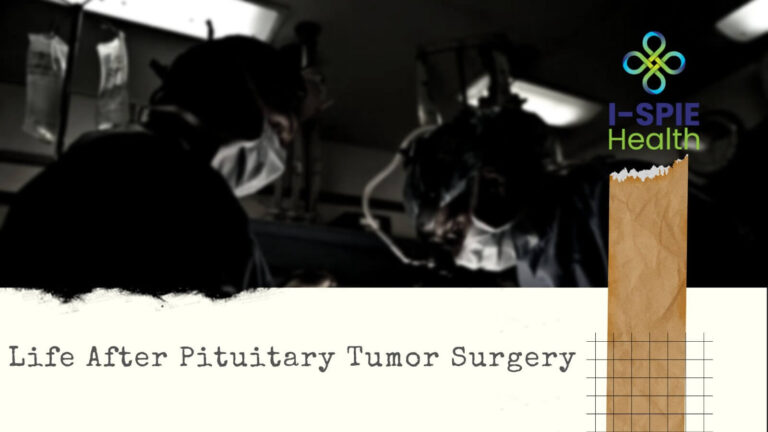Bowel leakage is a distressing condition that affects many individuals, impacting their quality of life and often causing embarrassment and discomfort. Understanding the symptoms, causes, and potential links to serious conditions like colon cancer is crucial for early detection and effective management. Let’s go and know If bowel leakage is a sign of cancer.
What is Bowel Leakage?
Bowel leakage, also known as fecal incontinence, is the inability to control bowel movements, which leads to unexpected stool leakage. It can range from mild leakage to complete loss of bowel control.
Symptoms of Bowel Leakage
- Involuntary Leakage: Unintentional passing of stool, ranging from small amounts to complete bowel movements.
- Urgency: Sudden and strong urges to have a bowel movement.
- Incomplete Emptying: Feeling like you haven’t fully emptied your bowels after a bowel movement.
- Gas Leakage: Accidental passing of gas without control.
- Diarrhea or Constipation: Fluctuations in bowel habits can contribute to bowel leakage.
Association Between Bowel Leakage and Colon Cancer
While bowel leakage itself may not indicate colon cancer, there can be an association between the two due to several factors:
- Underlying Conditions: Conditions like inflammatory bowel disease (IBD) or colorectal cancer can lead to bowel leakage as a symptom.
- Nerve Damage: Nerve damage in the rectum or surrounding areas, often associated with conditions like diabetes or neurological disorders, can contribute to bowel leakage and may also be linked to cancer.
- Age: Both bowel leakage and certain types of cancer, including colon cancer, are more common in older individuals.
How Does Bowel Leakage Happen?
Bowel leakage can occur due to various factors:
Muscle Weakness
Weakness in the muscles that control bowel movements, particularly the sphincter muscles, compromises their ability to maintain a tight seal, leading to instances of leakage. This can occur due to factors like aging, pelvic floor muscle dysfunction, or trauma.
Nerve Damage
Damage to the nerves responsible for regulating bowel function can disrupt the communication between the brain and the bowel muscles, resulting in involuntary leakage. Conditions such as multiple sclerosis, spinal cord injuries, or nerve compression can contribute to this nerve damage.
Chronic Constipation or Diarrhea
Persistent constipation puts strain on the muscles involved in bowel movements, potentially weakening them over time and increasing the likelihood of leakage. Conversely, chronic diarrhea can cause irritation and inflammation in the rectal area, leading to urgency and episodes of leakage.
Surgical Procedures
Surgeries involving the rectum or nearby structures can inadvertently damage nerves or disrupt muscle function, affecting bowel control. This can occur after procedures such as hemorrhoidectomy, colorectal surgery, or treatments for conditions like anal fistulas or inflammatory bowel disease.
Is Bowel Leakage a Sign of Cancer?
Bowel leakage itself is not typically a direct sign of cancer. However, it can be a symptom of underlying conditions like colorectal cancer or other gastrointestinal issues that require medical attention.
Why People Said That Bowel Leakage Is a Sign of Colon Cancer?
Bowel leakage can be a sign of colon cancer if it is accompanied by other concerning symptoms such as:
Blood in Stool
If you notice visible blood in your stool, it’s essential to seek medical attention promptly, as it can indicate bleeding within the colon. This bleeding may result from various causes, including hemorrhoids, inflammation, or cancerous growths like polyps or tumors. Diagnostic tests like colonoscopy can help identify the underlying cause and determine appropriate treatment.
Unexplained Weight Loss
Significant and unexplained weight loss, especially without changes in diet or exercise, can be a concerning symptom that warrants medical evaluation. In the context of colorectal issues, including cancer, weight loss may occur due to factors such as reduced appetite, metabolic changes, or the body’s response to fighting the disease. It’s crucial to consult a healthcare professional for thorough assessment and management.
Changes in Bowel Habits
Persistent changes in bowel habits should not be ignored, as they can be early indicators of colorectal issues, including cancer. These changes may include narrowing of stools (pencil-thin stools), alternating constipation and diarrhea, or a feeling of incomplete emptying after bowel movements. Any unusual or concerning bowel habits should prompt a discussion with a healthcare provider and may necessitate further investigation through diagnostic tests like colonoscopy or imaging studies.
Read More: Is Low Potassium a Sign of Cancer?
Diagnosis and Treatment Options for Bowel Leakage and Colon Cancer
Diagnosis of bowel leakage and potential underlying conditions like colon cancer may involve:
- Physical Examination: Including a digital rectal exam to check for abnormalities.
- Imaging Tests: These include colonoscopies, MRIs, and CT scans to visualize the colon and detect any abnormalities or growths.
- Stool Sample Analysis: To check for the presence of blood or abnormal cells.
- Biopsy: If suspicious growths are found, a biopsy may be performed to determine if they are cancerous.
Treatment options depend on the underlying cause:
- Bowel Leakage Management includes dietary changes, pelvic floor exercises, medications to regulate bowel movements, and, in some cases, surgical interventions.
- Colon Cancer Treatment: Treatment may involve surgery, chemotherapy, radiation therapy, targeted therapy, or a combination of these approaches, depending on the stage and severity of the cancer.
How to Prevent Bowel Leakage and Cancer
While not all cases of bowel leakage or colon cancer can be prevented, certain lifestyle choices and preventive measures can lower the risk:
Healthy Diet
Incorporating a diet abundant in fiber, fruits, vegetables, and whole grains is beneficial for promoting regular bowel movements and sustaining digestive health. Fiber aids in maintaining soft and bulky stools, reducing the risk of constipation and potential strain on bowel muscles, which can contribute to leakage. Additionally, a nutrient-rich diet supports overall well-being and may contribute to a lower risk of developing colorectal cancer.
Regular Exercise
Engaging in regular physical activity is key to maintaining a healthy weight, which is linked to a reduced risk of various health conditions, including colorectal issues and cancer. Exercise also plays a role in improving muscle tone, including the muscles involved in bowel control, potentially lowering the likelihood of bowel leakage. Moreover, physical activity supports overall bowel function and promotes a more efficient digestive system.
Avoiding Risk Factors
Lifestyle choices such as avoiding smoking and excessive alcohol consumption can help mitigate the risk of developing colorectal issues, including cancer. Smoking is associated with an increased risk of various cancers, while excessive alcohol intake can contribute to gastrointestinal problems. Additionally, maintaining an active lifestyle and avoiding prolonged sedentary periods can positively impact bowel health and overall well-being.
Routine Screenings
Regular screenings for colorectal cancer typically recommended for individuals over 50 or those with a family history of colorectal issues, are essential for early detection and timely intervention. Screening methods such as colonoscopy can detect precancerous growths (polyps) or early-stage cancers, allowing for prompt treatment and improved outcomes. Early detection through routine screenings significantly reduces the risk of advanced-stage colorectal cancer and associated complications.
Take the Help of a Care Coach and a Holistic Approach
Cancer treatment, including colon cancer, requires a holistic approach that not only addresses physical symptoms but also considers the emotional and psychological well-being of patients. Supportive care, Cancer Support, nutritional counseling, pain management, and mental health support are integral parts of comprehensive cancer care.
Worried about bowel leakage and its potential link to cancer?
Learn the facts and get personalized advice from Madhavi Parikh, a certified cancer coach who can guide you through the complexities of cancer diagnosis, treatment, and survivorship.
Conclusion
Bowel leakage can be a challenging condition, and while it may not always indicate colon cancer directly, it can be associated with underlying gastrointestinal issues that require medical attention. Understanding the symptoms, seeking timely diagnosis and treatment, adopting healthy lifestyle habits, and prioritizing holistic care are essential steps in managing bowel health and overall well-being.
FAQ
What are the red flags for bowel incontinence?
- Red flags include persistent or sudden onset of bowel leakage, changes in bowel habits such as increased frequency or urgency, pain during bowel movements, unintended weight loss, or the presence of blood in the stool.
Why am I having bowel leakage?
- Bowel leakage can be caused by various factors such as muscle or nerve damage in the rectum or anal sphincter, chronic diarrhea or constipation, rectal prolapse, pelvic floor muscle weakness, or underlying medical conditions like diabetes or neurological disorders.
How can I stop fecal leakage?
- You can manage or reduce fecal leakage through various treatment options. These may include dietary changes to regulate bowel movements (such as increasing fiber intake), medications to treat diarrhea or constipation, pelvic floor exercises (like Kegel exercises) to strengthen muscles controlling bowel movements, biofeedback therapy to improve muscle function, or, in severe cases, surgical interventions.
What cancer causes bowel leakage?
- Bowel leakage can be associated with colorectal cancer, which may cause changes in bowel habits (such as increased frequency or urgency), rectal bleeding, abdominal pain or discomfort, or obstruction of the bowel. It’s important to seek medical evaluation if you experience persistent or concerning symptoms.








4 Comments